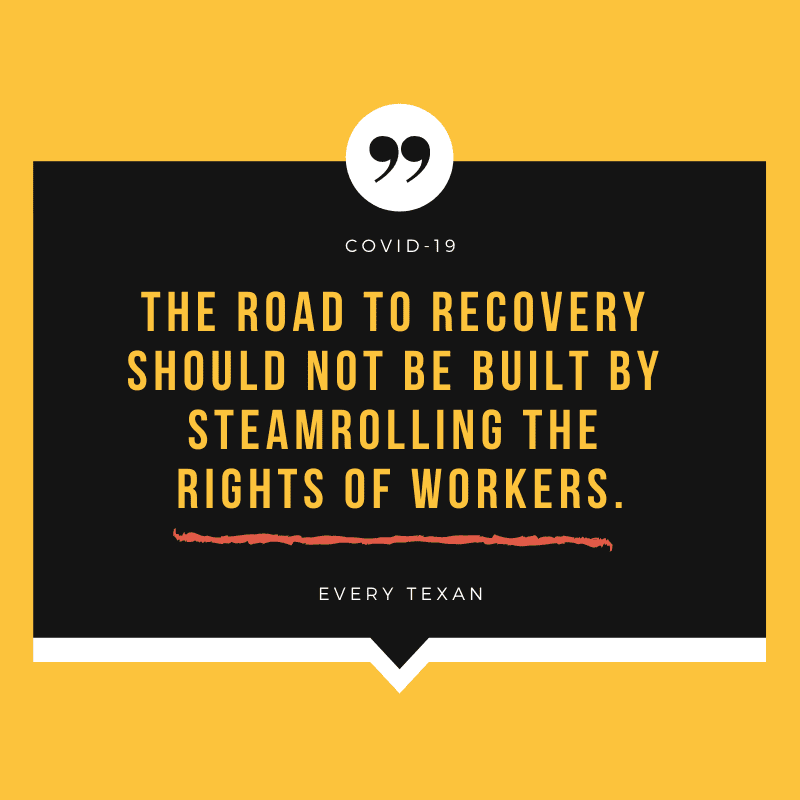Senate Republicans have put forth a proposal to give corporations immunity from lawsuits involving a failure to protect workers from COVID-19 exposure while on the job. This immunity will remove all incentive for employers to provide safe working environments for employees.
The policy will establish a race to the bottom in workplace health and safety, as even law-abiding employers will be disincentivized from implementing proper health and safety protections—endangering working people, their families, and their communities. In fact, it will create an incentive for employers to cut costs on safety measures they might otherwise take if the threat of legal action remained. The workers most impacted by reductions in safety precautions will be those carrying out essential work such as those staffing adult care facilities or in meat processing, industries where we have already seen gross misconduct in safety measures for employees.
The Senate Republican’s plan for corporate immunity will also let employers off the hook for ‘pandemic-related’ violations which could include protections such as minimum wage and overtime laws or discrimination laws.
This immunity proposal also continues to show Senate leadership has no interest in addressing racial inequity by once again ignoring the needs of Black, Latinx, Indigenous, and other workers of color who make up a large share of workers in essential and in-person jobs. We know communities of color have been the most vulnerable to coronavirus infection and death and removing this liability from corporations will only make these disparities worse. Data from the Centers for Disease Control and Prevention shows that Latinx and Black Americans have been three times more likely than their white neighbors to contract COVID-19.
Corporate immunity will only contribute to already inadequate workplace safety standards and enforcement. Without the threat of legal action, employers are only held responsible to weak workplace safety regulators such as the Occupational Safety and Health Administration (OSHA), which has been severely under resourced by the current administration (with only 870 inspectors nationwide as of 2019) and has failed to issue any enforceable requirements on workplaces to help prevent the spread of COVID-19.
The road to recovery shouldn’t be built by steamrolling the rights of workers that are essential to rebuilding our economy. Lawmakers need to consider the perverse incentives they create in the name of protecting business interest, while ignoring the health and safety of its workforce. It is most certainly a clear sign that our leaders no longer have our best interests at heart when we find ourselves arguing to prioritize worker lives over corporate profits.
